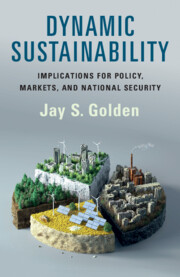Existing theories of individual trade preferences do not satisfactorily explain how security concerns should affect American support for the US–China trade war that began in 2018. Although existing theories of public attitudes toward international trade—economic self-interest, sociotropism, partisanship, reciprocity, and xenophobia—all help to explain initial support for the trade war, these hypotheses do not adequately explain citizen attitudes in the context of an increasingly adversarial and securitized bilateral US–China relationship. In particular, they do not address how rising security tensions affect trade preferences. Using nationally representative original survey data (n = 1,016) and a nonrepresentative survey with an embedded experiment (n = 1,015), this article argues that securitization of the bilateral economic relationship has spurred threat perceptions and given rise to a Cold War narrative that has in turn caused a substantial share of Americans to become less concerned with the economic outcomes of trade and more concerned with trade's effect on security. These Americans demonstrate an instinctive “commercial peace” response, seeing trade liberalization as a potential deterrent to conflict. The results challenge conventional wisdom on political support for the trade war and add depth to existing theories of individual trade preferences regarding the interaction between economic, security, and psychological motivations.
